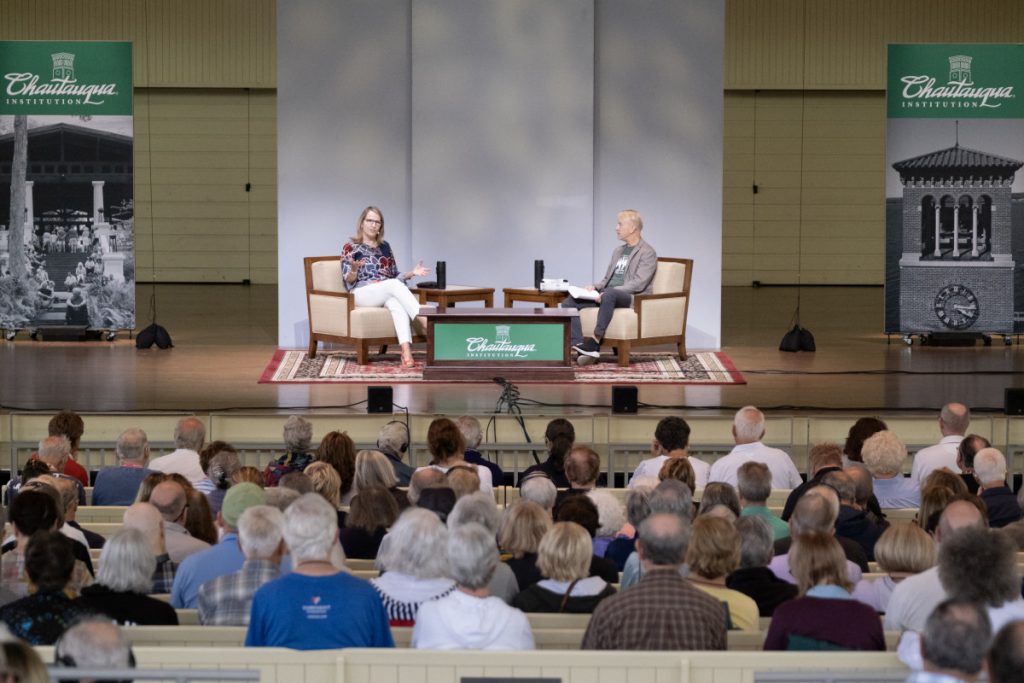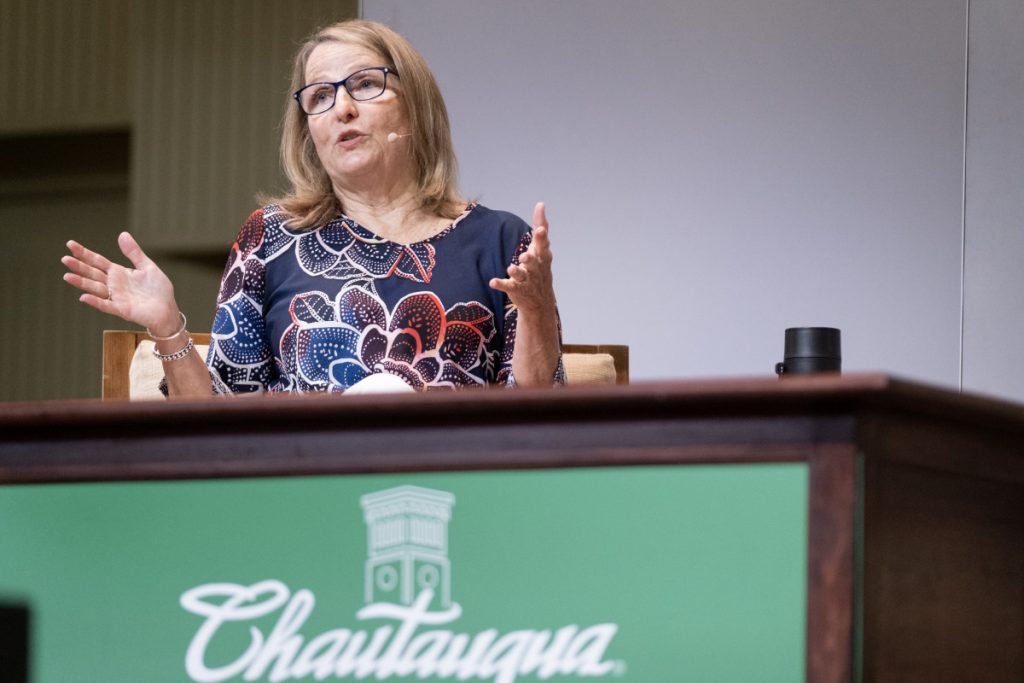
Alton Northup
Staff writer
Having national parks means nothing without their preservation for the next generation, and Theresa Pierno advocates for just that.
“When you see the parks through the eyes of children … that makes everything possible,” said Pierno, the president and CEO of National Parks Conservation Association.
Pierno closed the Chautauqua Lecture Series Week Seven theme, “The National Parks: How America’s ‘Best Idea’ is Meeting 21st-Century Challenges,” at 10:45 a.m. Friday in the Amphitheater in conversation with Mark Wenzler, the Peter Nosler Director of the Chautauqua Climate Change Initiative and former senior vice president at NPCA.
In 1872, President Ulysses S. Grant signed the Yellowstone National Park Protection Act into law – creating the first national park in not just the United States but the world. By 1916, the Department of Interior managed 35 national parks and monuments, but there was still no unified leadership to operate them.
Stephen Mather, Borax magnate and conservationist, noticed the deteriorating conditions this caused. Impassioned by his experience, he wrote a letter to Washington, D.C., in protest of this neglect. Legend has it, Pierno said, Secretary of Interior Franklin K. Lane responded that if he did not agree with how the parks were run, he should go to Washington and run them himself.
In May 1917, Mather was appointed the first director of the newly-created National Park Service. He brought his friend and journalist Robert Sterling Yard with him, and together they introduced the nation to the beauty in national parks.
Soon, Yard realized the advocacy work he wanted to do could not exist within the confines of government. So, in 1919, he established the NPCA and served as its first president.
“Yard said, ‘It was the people who would need to save their own parks,’ ” said Pierno. “Today, it’s true just as it was in 1919.”
More than 100 years later, NPCA’s 200-person staff and 1.6 million members across the country maintain its “steadfast work to protect our parks.”
An early battle was against a proposed dam project in Yellowstone, Pierno said. The Yellowstone River is the longest undammed river in the lower 48 states, but had it not been for NPCA advocacy in the 1970s, this would not be true today.
Now, the organization faces a similar problem with the Ambler Road project in northwest Alaska. The 211-mile private industrial road would facilitate mine development and transportation of ore through NPS land. The development threatens clean water and food supply for Native people, as well as the caribou migration.

“It would cross thousands of streams, creeks, wetlands, slice through the Gates of Arctic National Park and Preserve – when a proposal like this becomes a reality, it changes that landscape forever,” Pierno said. “There’s no going back.”
She further called the plan “short-sighted” and said it is the job of NPCA to ensure the preservation of historic and natural lands is anything but. Under her leadership, she has sought to make national parks equitable, just and inclusive.
On what would have been Emmett Till’s 82nd birthday this year, President Joe Biden signed a proclamation designating a national monument to honor Till and his mother, Mamie Till-Mobley. Till’s abduction and murder in 1955 became a catalyst for the civil rights movement after his mother held an open-casket funeral.
The monument includes sites in Illinois and Mississippi that tell the story of Till’s life and death. Historic and cultural sites like this are crucial to understanding the history of the country, Pierno said.
“If we are to become a more perfect union, we need to focus on all that needs to be repaired,” she said. “It’s when we face our past that we move forward together; national parks play a key role in helping us do that.”
The creation of the new monument, which is the 425th unit under NPS control, shows that while national parks honor history, they are not a thing of the past. Pierno said nobody tells the story of the United States better than the agency, and these stories inspire the next generation.
“Every story that is preserved in the national parks system is worthy,” she said.




